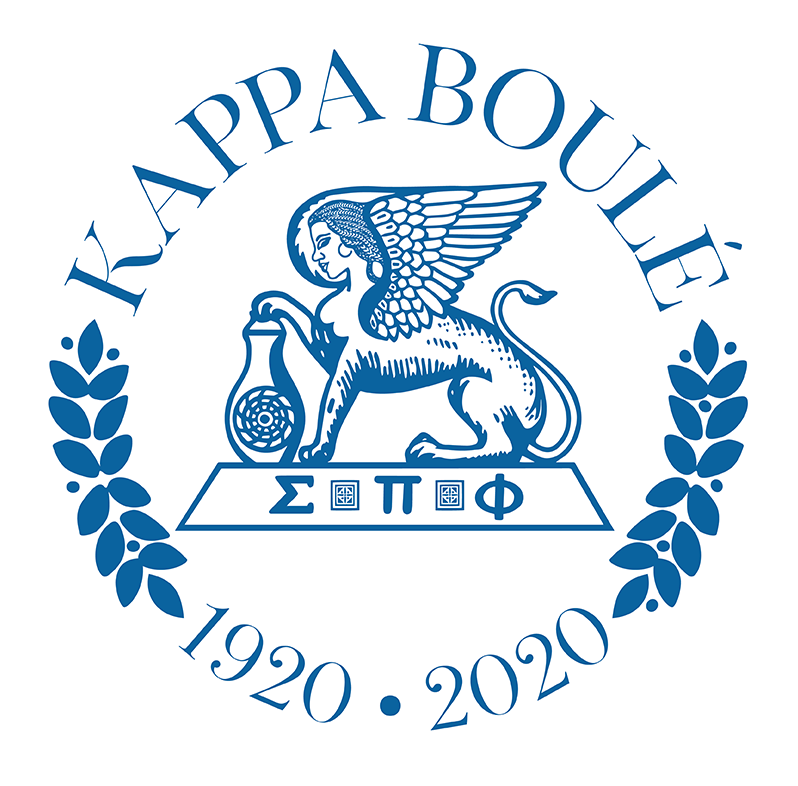BRIEF HISTORY OF SIGMA PI PHI (BOULÉ) AND KAPPA BOULÉ

The Legacy Continues
At the beginning of the 20th century, national, state and local racial discrimination and segregation, legitimized by the 1896 Plessey v. Ferguson Supreme Court decision that called for separate but equal racial policies and practices, and
further sanctioned by the passage of local and state Jim Crow laws throughout the nation, limited housing, education and employment opportunities for black Americans for more than half of the 20th century. Black citizens were forced to live in segregated neighborhoods with limited access to educational, economic and political opportunities, housing options, and community and health services throughout the United States. Yet, within black communities, social organizations, churches, benevolent associations, secret fraternal groups, private schools, newspapers and small entrepreneurial businesses were established to provide for individual and family support and sustainability.
Such was the case in the city of Philadelphia, with a population of black citizens in 1900 of approximately 63,000. Here, in his home city of Philadelphia, Henry McKee Minton and a small group of his colleagues founded Sigma Pi Phi Fraternity, or Boulé, the nation’s first black Greek-letter Fraternity. The founders of Sigma Pi Phi Fraternity were Richard J. Warrick, Jr., D.D.S., Henry M. Minton, Ph.G., Algernon B. Jackson, M.D., Edwin C.J.T. Howard, M.D., Eugene T. Hinson, M.D. and Robert J. Abele, M.D. From its founding in 1904, with six members in the city of Philadelphia, Pennsylvania, Sigma Pi Phi Fraternity has deliberately grown slowly, as the emphasis has always been on quality and not quantity. During this same period, Atlanta, Georgia had a population of approximately 90,000 people with 35,900 of African descent. Over the next two decades, Atlanta’s population saw a dramatic increase with a doubling of the population in 1920 and the attraction of many men of distinction moving to Atlanta, making Atlanta an excellent city to support the expansion of Sigma Pi Phi. The Boulé currently has nearly 5,000 active members who are affiliated with 134 member boulés in cities across the breadth of this nation and in Nassau, The Bahamas, and London, The United Kingdom.
On January 24, 1920, Kappa Boulé was established in as the 10th member boulé of Sigma Pi Phi. The charter Archons of Kappa Boulé included the following distinguished educators and professionals: Dr. Samuel H. Archer, Sr., John W. E. Bowen, Sr., Ph.D., Henry Rutherford. Butler, M.D., Charles C. Cater, M.D., Leonidas C. Crogman, D.D.S., Truman K. Gibson, Sr., John Hope, Charles H. Johnson, William F. Penn, M.D., Thomas H. Slater, M.D., George A. Towns, William J. Trent, Sr., and Austin T. Walden, Esq.
Through the years, the names of many other distinguished Archons have been added to the roll of Kappa Boulé, including Archons W. E. B. DuBois and Benjamin E. Mays. Following World War II, Atlanta became a thriving state capital, but also a regional center for the Southeast for education, finance and commerce. Men of great stature and vision were allured to Atlanta, and many of them became archons. By 1963, Kappa’s membership rose to 35 but by the year 2002, Kappa Archons membership had grown to over 100 Archons of distinction.
Today, Kappa Boulé is Sigma Pi Phi’s largest member boulé. In the 21st century, Kappa Boulé Archons membership had grown to over 125 Archons of distinction. Our membership comprises a plethora of outstanding men in every profession, including education, medicine, dentistry, banking, architecture, the legal profession, government, foreign service, professional sports and business.
